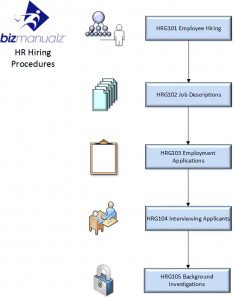What Makes an Effective Onboarding Process for Remote Employees?

Remote onboarding, along with all the processes behind it, is quickly becoming the new normal. It has always been a critical factor in the hiring process for companies who allow employees to work remotely. If you are preparing your business for remote recruitment, your employees are much more likely to stay with your company and become major contributors to its success. But if you miss that opportunity and get it wrong, they might walk out the door, taking their talents elsewhere. What makes an effective onboarding process for remote employees?
4 Necessary Elements to Create an Effective Onboarding Process for Remote Employees
Nowadays, more employees than ever are working remotely. In this situation, human resources leaders face the challenge of having to recruit, hire, and onboard new employees virtually. The good news is that you do not have to try to perfect this process through trial and error. Instead, you can use the tips listed below!
If you try to stay connected with your employees, encourage them to ask questions and raise concerns, ask for their feedback, or even put more time into the process than you used to, you might make the onboarding a much easier experience for both you and the new employees!
Keep Communication Lines Open
When your new employees are working remotely, communication becomes critical. The best way to do this is to get everyone on the same page from the beginning. In other words, pick an online tool that allows all your employees to stay connected, share information, and discuss ideas. Emails do not have to be the only way you communicate. You can also use Microsoft Teams chats, Zoom, or Google Workspace.
Do not forget to communicate your expectations! Tell the new employees what exactly is expected of them, such as when they should respond to emails, when they should be available, and so on. Be specific so that they know what they should do and when they should do it. For the best results, check out the 5 elements of effective communication your staff can implement today!

HR Hiring Policies Procedures in MS-Word.
Start Onboarding Early
There are many remote recruitment mistakes to avoid. For example, onboarding can begin before the start date. Human resources leaders and individual teams can welcome new hires by reaching out to them earlier than they are set to begin.
This can be done in the form of sending recorded video messages, making virtual calls, and sending welcome messages to all the team members. The company can also ask the new hires to prepare a short video or a presentation where they can introduce themselves.
This allows them to ask questions, get to know the hiring manager and the team that the new hires are going to join, and learn more about the company before they get fully immersed in their daily duties. You can also use the time before an employee’s start date to let them know how your company runs, what their role will be, and tell them about the tools you use to work. If there are any documents that have to be signed, you can also digitize them and make plans to go over them during a video call.
Use Training Modules
Training is another key element of the onboarding process. However, it is not always easy to present training material without a lot of back and forth between you and your new employees. So, try using training modules instead! They can work very well for remote employees, as they allow them to learn at their own pace and revisit the material until it sinks in.
When planning your training modules, focus on who is going to take them, as it is going to determine everything – from the tone of voice to the content formats you will use within each training module. For example, if the new hire is joining a specific project in your company and has plenty of experience, the onboarding is going to require a more formal tone. Then, break every module up into individual topics so that it is easier to go through them.
Plan the format of your content using new technologies to influence your training. For example, an introduction to the company’s core values can be shown in the form of a presentation, but it might be better to make a video that will introduce everyone to the company. You can also consider adding knowledge tests in the form of quizzes and questions to each module.
Encourage Employee Questions
Even though your employees might get most of the information they need from training modules, they might still have questions to ask you. But you do not want them to feel like they are bothering you whenever they have a question, so encourage employee questions whenever they have them! Tell them that you are always willing to answer questions and make sure they are not simply afraid to send you a message.
This way, they will not feel like they have to hold back their curiosity. If they feel encouraged to ask questions from the very beginning, later on, they will also be less likely to make mistakes because if any issues arise, the first thing they will do will be messaging you and making sure that they are taking the right course of action.
Effective Onboarding Process for Remote Employees
To sum up, remote onboarding can be a challenging task, but it is crucial that you get it right. It is an excellent opportunity for you to ensure your new employees are going to be successful. It also allows you to learn from them and can even lead to improving or changing some processes or policies at your company for the better. You just need to ask for feedback and encourage new hires to speak up. Remember, you have to be willing to put in the time and effort to make this process a success for everyone involved, but once you do it, it will be well worth it!

















Leave a Reply